This is Sahar Al-Faifi from Cardiff, a molecular geneticist who works at an NHS cancer diagnostics lab in a hospital.
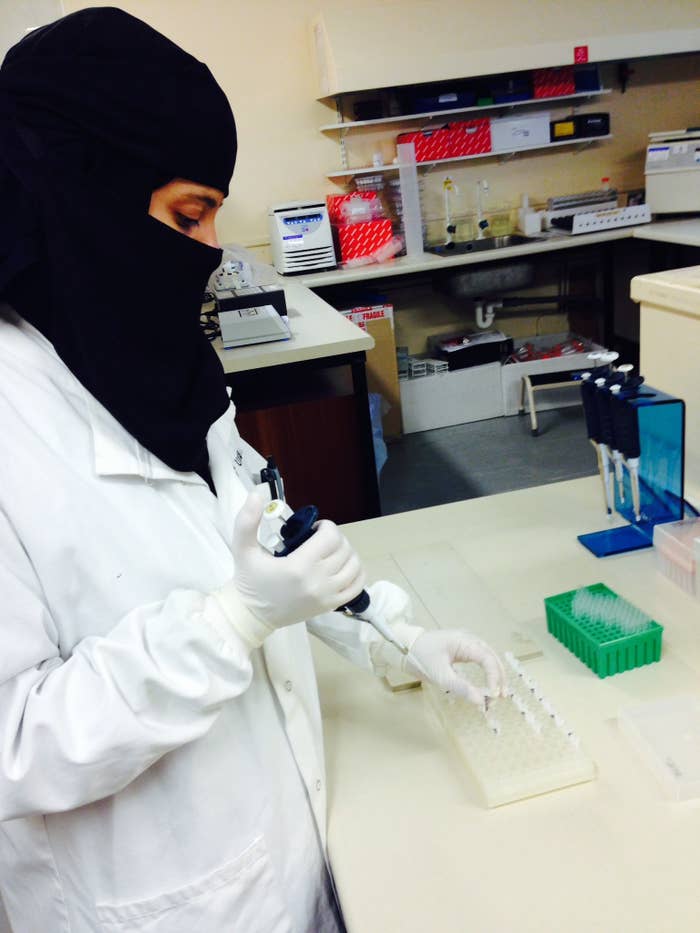
She works at an NHS cancer diagnostics lab in a hospital during the day, and is a community leader with Citizens UK, the community organisation. She also has an executive position on the Muslim Council of Britain.
And she goes skydiving five times a year.
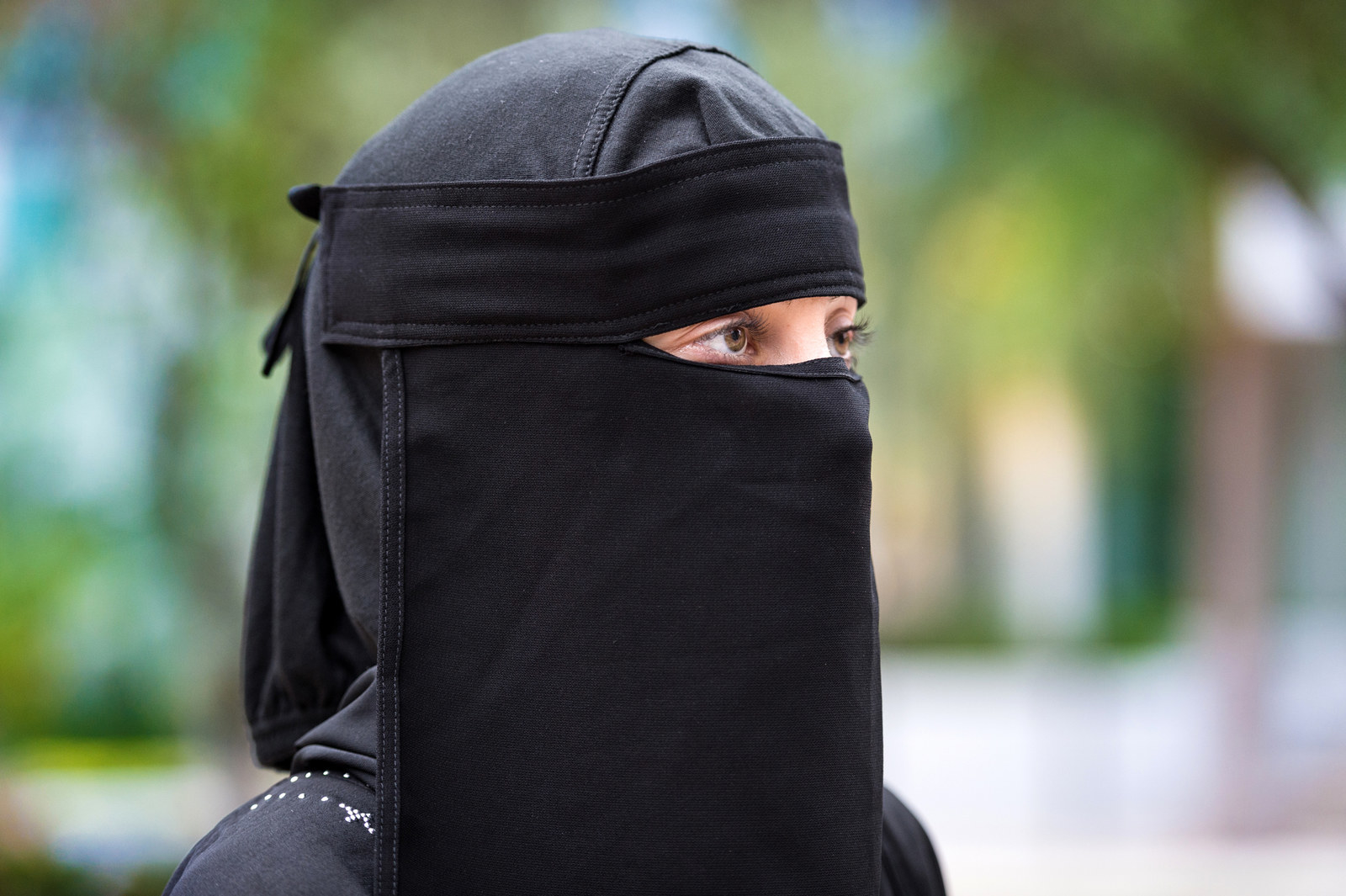
However, she's been pretty busy this week after UKIP launched their integration policy pledging to ban face coverings. Paul Nuttall, the Ukip leader, told the Andrew Marr Show: "You need to see people's faces".
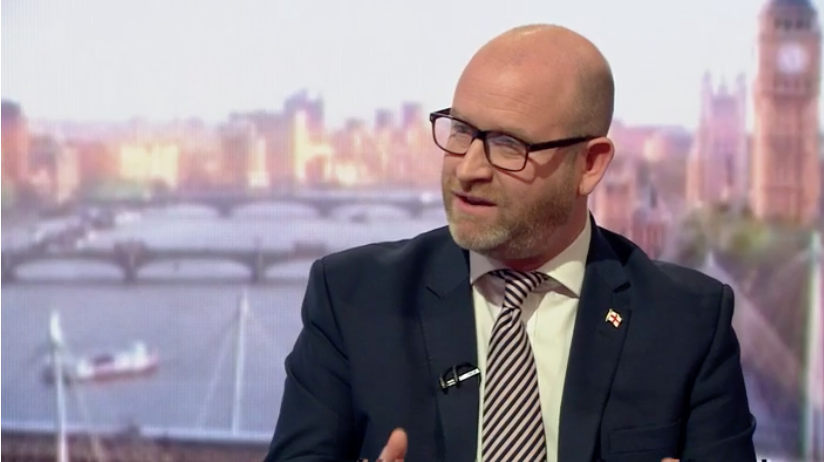
After a week of back to back interviews, including two TV interviews and around five radio interviews, Al-Faifi spoke to BuzzFeed News: "It's been really hectic for me the last 48 hours," she said.
"Since Ukip announced their manifesto [and burka ban policy] on Sunday, I've been receiving phonecalls constantly, personally and through the Muslim Council of Wales, from radio interviews, and TV shows."
She was meant to have a week off, she said. Yet on Monday she found herself being invited to do an interview with BBC's Victoria Live Show, alongside UKIP's Liz Jones. She then did an interview on ITV's This Morning, which has been watched nearly a quarter of a million times on YouTube.
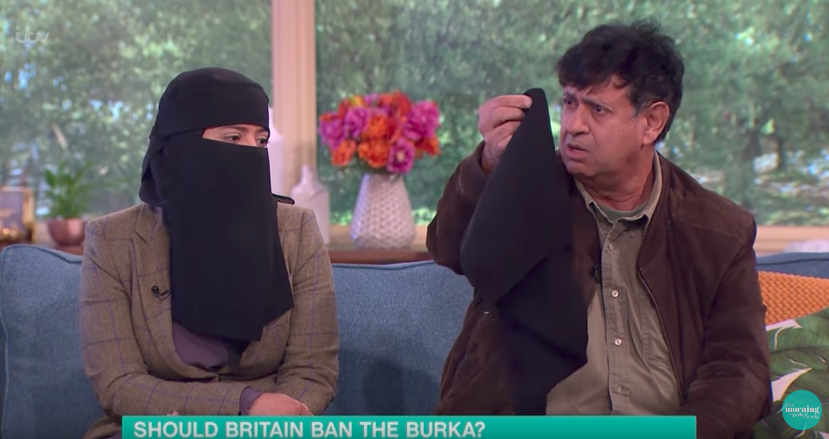
She was interviewed alongside Dr Taj Hargey, the founder of the Open Mosque initiative, who disagrees with face coverings. He brought along a Qur'an and niqab on set, which he picked up, saying: "How is this thing symbolic of Islam?"
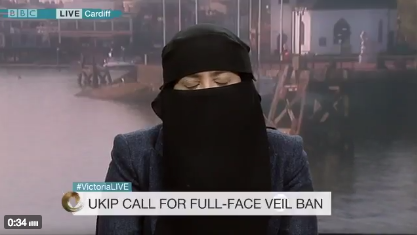
Al-Faifi says that since the interviews this week she has been inundated with messages of support. Straight after the interview a This Morning poll showed 71% of viewers said no to the question: "Should Britain ban the burka?"
@SaharAlFaifi So refined and articulate in all your interviews, much love sister!
Loved you on #thismorning @SaharAlFaifi I hope 1day we will look bk & laugh about society debating a personal choice such as this is. ❤️
"I must say I am overwhelmed by the kind messages that I received from my Muslim friends, and friends of faith and non-faith groups, Jewish friends, from LGBT [groups], from all over society sending me messages of support, kind feedback and I'm thinking: alhamdulillah, God has blessed me to do that, and I can only work with other people to make sure that hate is history, and hate has no place in our country," she said.
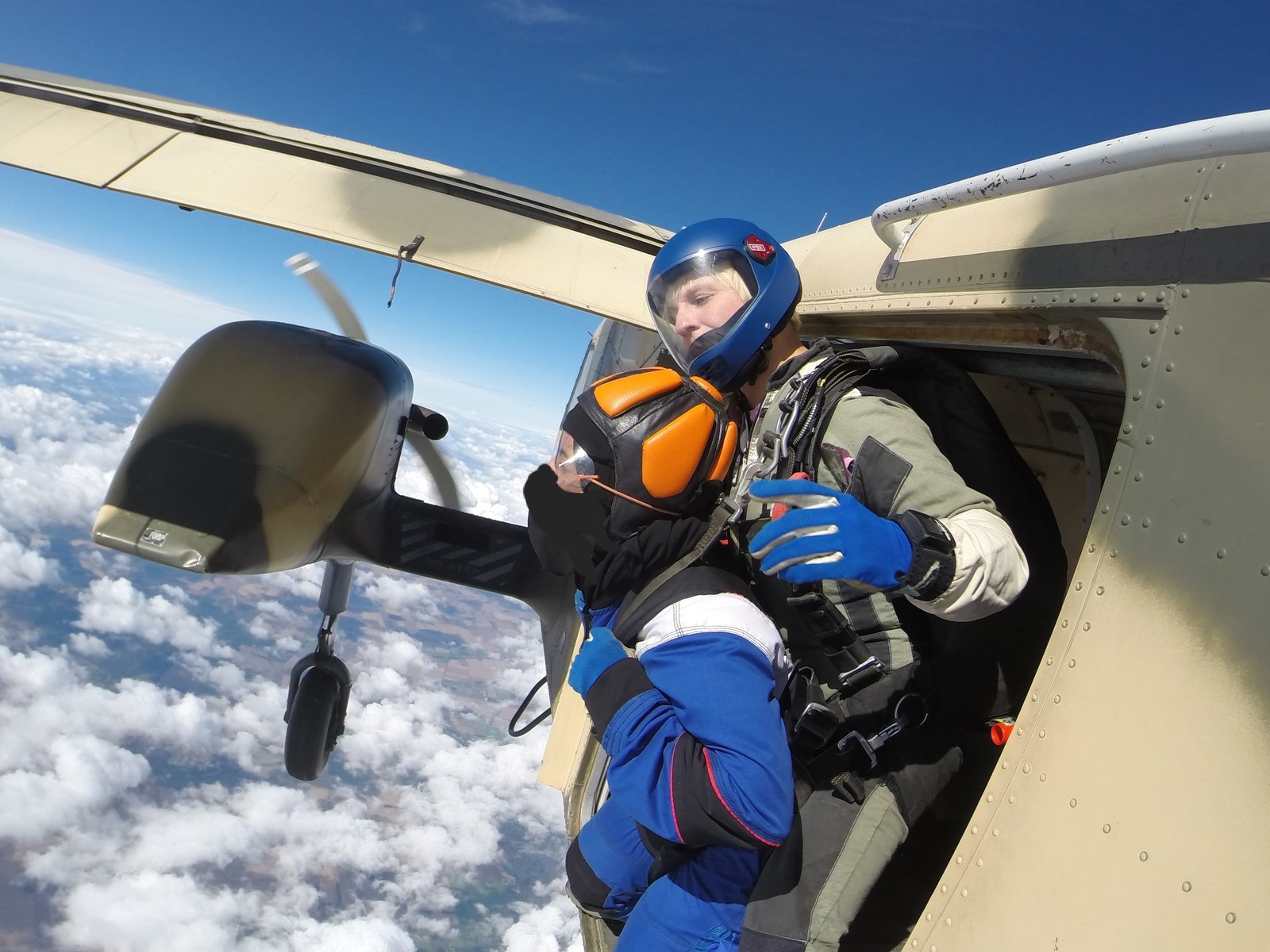
"It's almost [as if] Muslims are guilty unless proven otherwise. It's the other way around."
She says despite working for four years in a cancer diagnostic laboratory and having a masters in genetics, and community activism, she's faced a great deal of anti-Muslim hate.
"I have been struggling and suffering a lot because of the [amount] of physical and verbal abuse I've been facing. At the end of the day I'm not a terrorist, I'm not a bomber as they call me in the street. I'm a scientist."
In one recent case, she says she was doing an interview with the BBC when someone looked into the camera and called her a "fucking bomber".
"In another incident inside the hospital where I work I was walking from one department to the other with patient samples and someone passed by and said: 'Don't cut off my head you Isis.' Yes, inside the hospital," she said.
"I just said: At least respect the patients around us. Keep your hate and bigotry outside the hospital."
For Al-Faifi, such abuse has "become part of my life unfortunately. She added: "There are many sisters wearing the headscarf have been abused and sisters who don't wear the hijab and have been abused.
"So you can say the hate and bigotry has become normalised so much so it has been accepted and people wouldn't interfere. In most cases I've been abused and people would watch."
Al-Faifi, who first began wearing the niqab when she was 14, says she grew up seeing discussions about it. "Oh yeah I'm fed up. I'm fed up with it. It's every year. Almost every year we're still talking about this piece of fabric."
Touched by @hollywills words about #Niqab brilliant interview by @SaharAlFaifi Dealt with the troll so beautifully! https://t.co/7UWbsaZudK
"I mean there are more important issues. This niqab is my choice, it's [not] anyone else's issue and there are more important issues that need to be discussed: Affordable housing, social care and things like that and it's no one else's business.
"And we know UKIP is trying to capitalise on the hostile environment to get more votes, especially when the polls shows that they are luckily actually decreasing," she added.
She says when she became interested in politics – but not party politics – and began volunteering for Citizens UK in 2013, and had the chance to interact with both different faith and non-faith groups, campaigning on issues from affordable housing, to social care, the living wage to jobs for young people. "These are the things we need to focus on," she says.
"I feel inspired when I meet people of different backgrounds and having one to ones with them, and also some people have never interacted with a Muslim woman, let alone a Muslim woman wearing hijab.
"So at lot of the meetings you have to break down stereotypes. You've got to introduce yourself. I say I'm a molecular geneticist, but then I follow it up with, 'by the way I am also a skydiver', and their jaws drop. And yes I love skydiving – I'm a bit crazy."
When asked when she first decided to become a molecular geneticist she replied by saying it wasn't something she was often asked by the press. "The media is always interested in Muslim women but only interested in what they wear and not what they do. It's all about the niqab and the hijab, we do other things, don't we?"
She began her degree at Cardiff in 2007. In the same year Sir Martin Evans, a professor at her university, was awarded a Nobel Prize in medicine. "He was a true inspiration… it was only at the end of my first year I thought maybe genetics is my thing.
"Also my grandfather passed away because of cancer, years before I did my degree," says Al-Faifi, who believes she could use her skills in cancer diagnosis.
She says one of the things that keeps her going is being able to inspire other young Muslim women to excel in their fields, along with being able to work while wearing her niqab.
She acknowledges it was possible for her to get the job because of equality laws in the NHS, and says it was really important for her there were Muslim women in positions of seniority within the NHS. The first question she says she is usually asked by women is whether she can work with the niqab on.
"The truth is the more Muslim women are participating in public life, and.. more of them [are] progressing in senior positions. It helps me and helps the youngsters I talk to. I feel humbled."
"I want to see young Muslims, confident in [their] identity, proud of...being Muslim and active British citizens, and also have equal access to the job market, to the media to politics." She adds: "This is what we are calling for: We are equal citizens in this country and no-one has the right to discriminate against us in any field in any aspect."
When asked about integration and whether it is possible to integrate while wearing a face covering, Al-Faifi said: "The issue is Muslim women who chose to wear niqab are a minority in a minority. A few. Really a few, there aren't clear statistics of how many women decided to wear it but a few."
She said there's no empirical evidence that Muslim women who wear it are failing to integrate. "There is no empirical evidence," she said, adding there is a problem with the definition of integration.
"A lot of people think integration is assimilation when everyone looks the same as the larger component of society. People think: 'you aren't integrating if you aren't exactly like us.' The truth is this is assimilation.
"Integration in a multicultural, multifaith society like ours is that we celebrate our pluralism. In a pluralistic society everyone has a right to express their faith, their sexual orientation their belief as long as they don't harm anyone. Everyone should be an equal citizen," Al-Faifi says.

